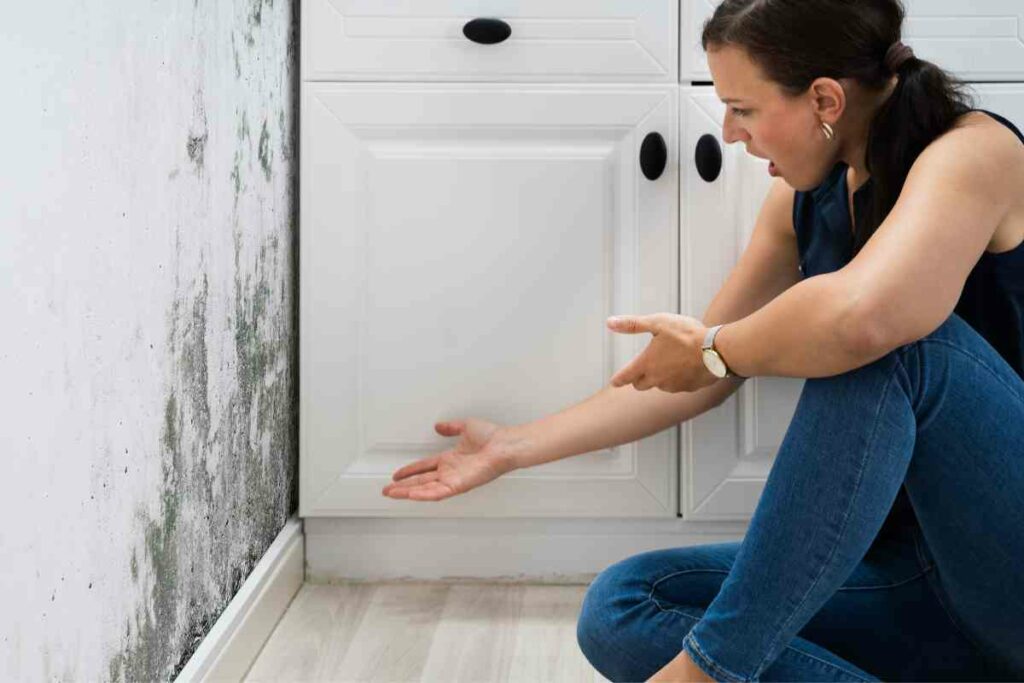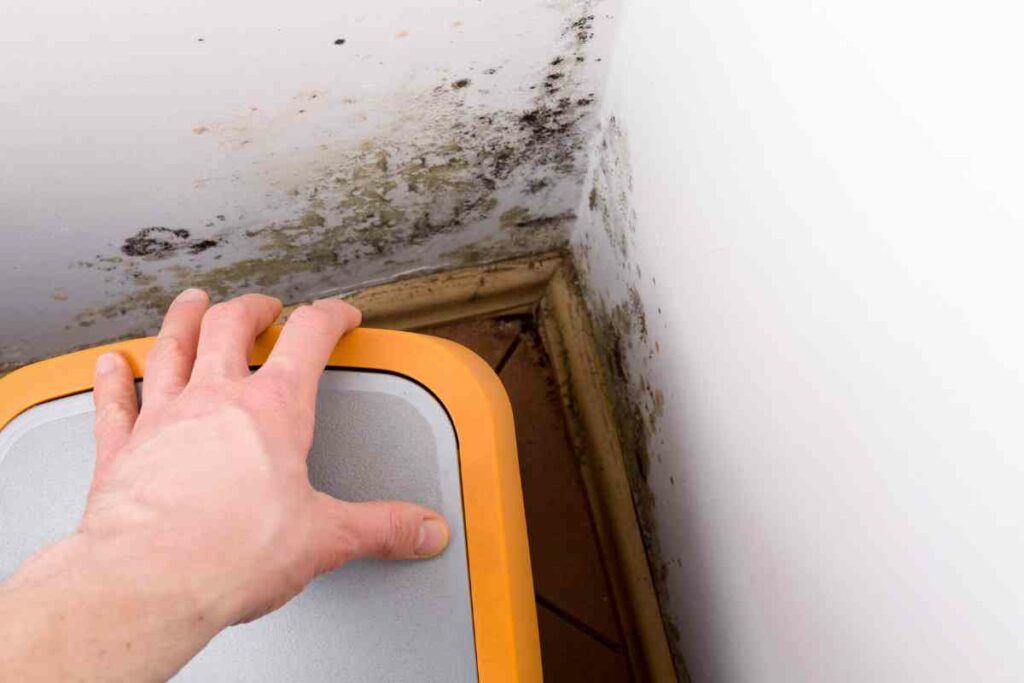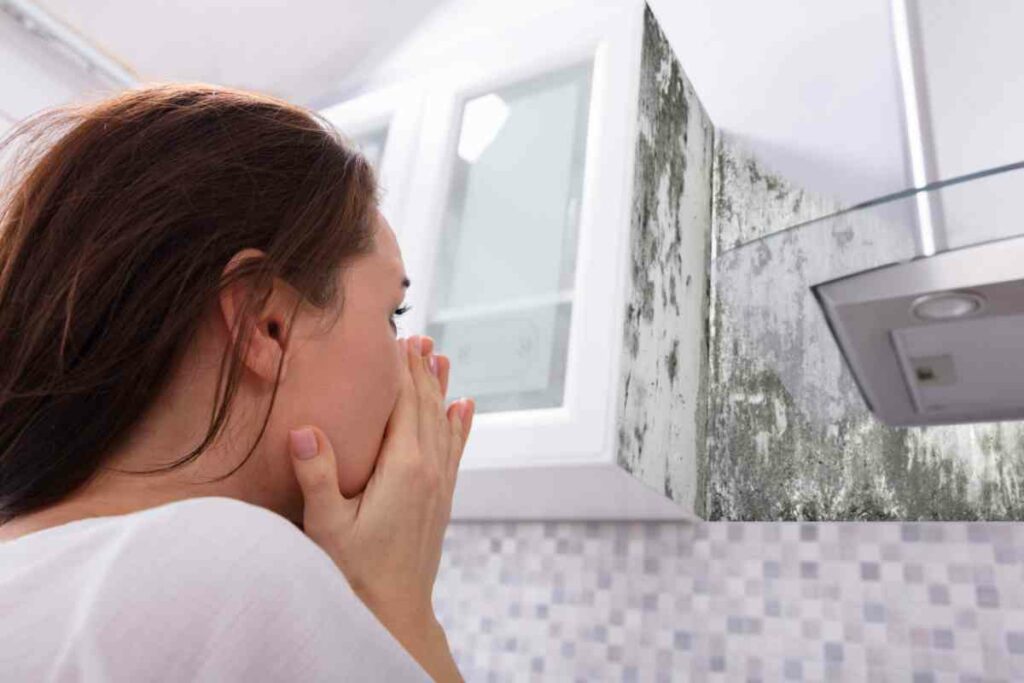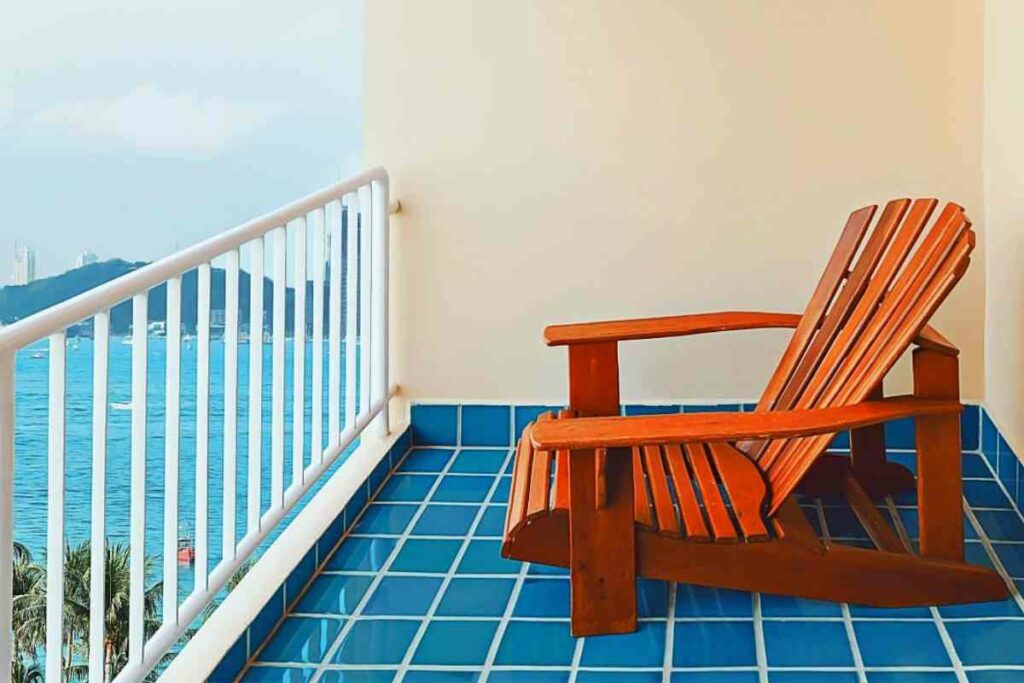If you find mold in your hotel room, contact the hotel staff immediately and request they provide you with a different room that is mold-free.
If they are unwilling to provide you with a new room or don’t have other available rooms, the best option is to find a different hotel.
When leaving the room, take a few pictures of the moldy areas and document any contents that may have been contaminated.
Keep these photos handy in case you need to dispute any fees with the hotel or in court.
What Should You Do If You Find Mold?

A lot of people tend to dismiss mold, especially if they do not intend to stay at the hotel for very long.
However, mold can be very dangerous even if you are exposed for a short period.
It can cause several issues, including:
- Blocked nose
- Dry cough
- Skin breakouts
- Throat pain
Therefore, if you notice mold, contact the front desk immediately. Make sure to explain the issue and document it with pictures if possible.
Be sure to remain polite and assertive, letting the staff know that it is unacceptable and ask to switch rooms.
If the hotel is unable or unwilling to provide you with a different room, or if the mold situation has rendered your interest in staying at the hotel null, you should ask for a full refund and go to another hotel.
Moreover, mold in a hotel is a breach of habitability, which states that a property must be safe and suitable for habitation. Therefore, you have the right to terminate it and seek compensation.
Can You Sue or Ask For Compensation?

Consumer protection laws protect people from harm caused by negligence or deliberate wrongdoing.
Suppose the hotel fails to satisfactorily handle a mold problem.
In that case, the hotel may be held liable for damages under these laws if the guest experiences health problems or gets injured due to contact with the mold.
This includes damages for:
- lost wages
- medical expenses
- and pain and suffering
However, for you to be compensated is if you provide evidence that the mold was present in the room when you rented it.
Also, you have to prove the hotel was aware of the mold but did nothing to fix it and the mold caused health problems.
Therefore, it is crucial to document any mold you find in the hotel room so that you have evidence to present if you choose to pursue a claim.
How To Identify Mold In Your Hotel Room

Fortunately, there are signs that are indicators of mold presence in your room.
Check for discoloration
Look in corners, behind furniture, windows, bathroom, under the carpet, and on the ceiling for any visible signs of mold growth—such as black or brown. Other colors of mold include grey, white, yellow, green, and blue.
Musty or Foul Odors
As mold grows, it releases a musty odor because it produces a type of volatile organic compound (VOC) called geosmin. Geosmin is responsible for the earthy, musty smell associated with mold.
It can be challenging to describe a musty smell, but it is unmistakable- it smells like dirty laundry or wet socks. This odor usually feels worse in the area where the mold is located.

Notice Respiratory and Allergy Issues
You might notice you experience respiratory issues and allergy symptoms when you are indoors.
These reactions are typically caused by an allergen produced by certain types of mold.
Examples of such reactions include:
- Itchy eyes
- Sneezing
- Itchy throat
- Coughing
- Congestion
- Asthma
- Wheezing
- Skin rashes
Experience Health Issues
Mold can contribute to sick building syndrome, which causes chronic headaches and fatigue within a few hours of staying in an infested room.
Final Thoughts
If you find mold in your hotel room, you should ask for a new room or consider staying in another hotel. Speak to the front desk staff and explain the situation to ensure you get a refund or compensation.
Documenting the mold, taking pictures, and saving any communication with the hotel is essential. Taking these actions can help you get a refund or a better deal.









